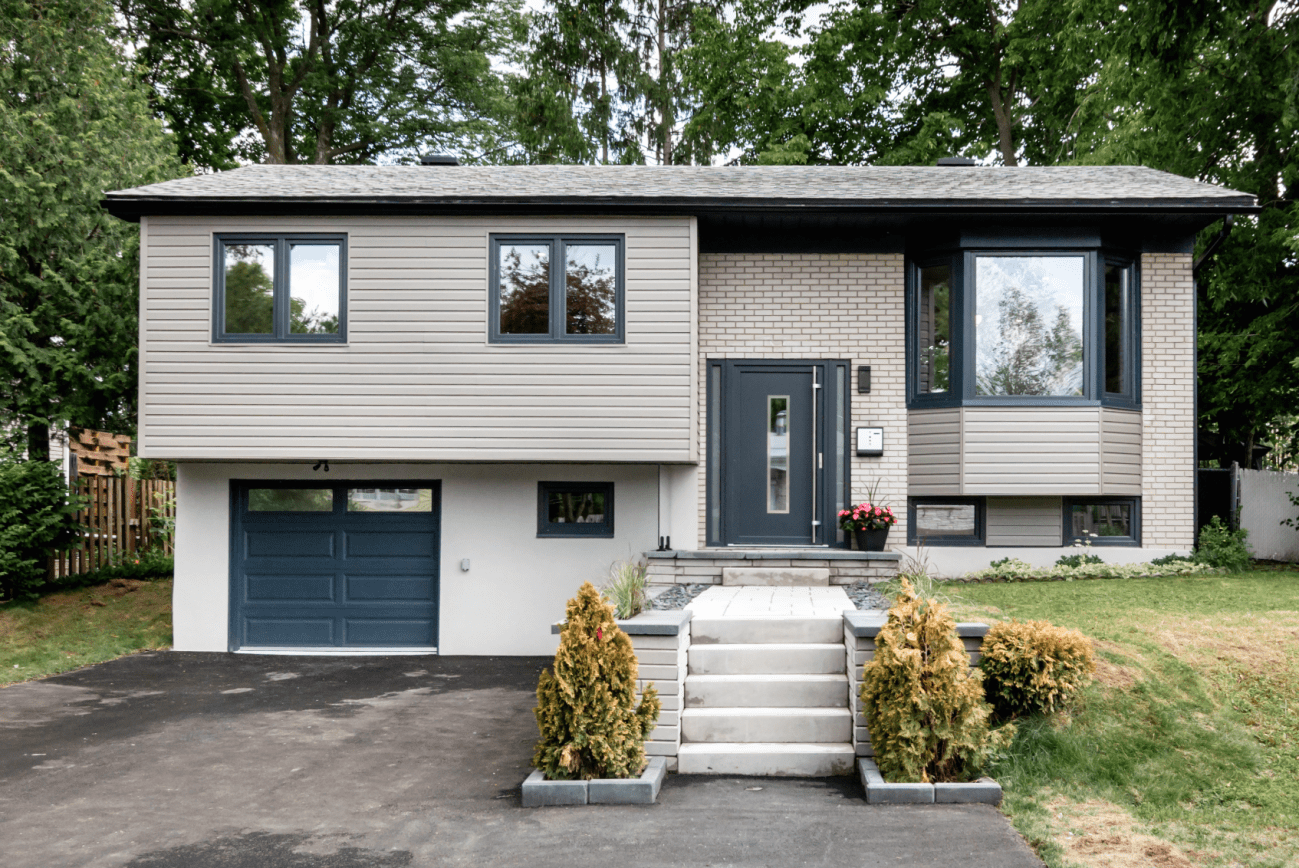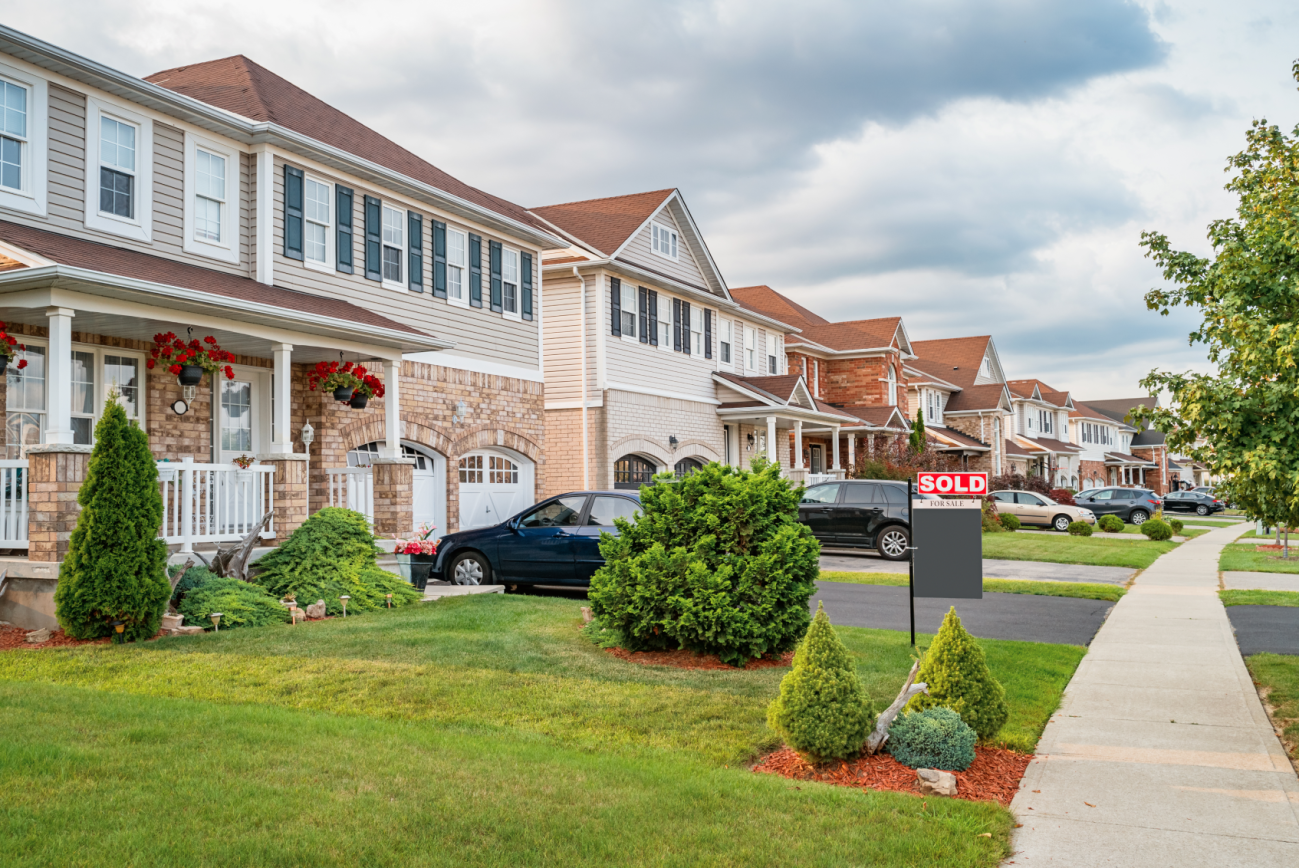Buying a home with friends or family might seem like the perfect solution, especially in a competitive housing market with high prices. For some people, sharing the cost of a down payment is the only way to conceivably buy a home. Sharing the burden lets you split costs and balance the financial weight between multiple parties. But buying a home with multiple owners can come with headaches if you don’t think through all the details. Here’s what you should know.
Why buy a house with multiple owners?
Competitive housing markets and high prices have pushed homebuying out of reach for many Canadians. Studies show that most homebuyers use resources beyond their yearly income to source money for a down payment. Around 39% of new homeowners rely on gifts from family, 25% rely on loans from family or friends, and 38% count on RRSPs to save. Buying a house with friends or family can be an appealing way to make purchasing a home possible.
Benefits to buying a home with friends
- You’ll likely be able to afford a bigger down payment, minimizing monthly mortgage payments.
- A down payment under 20% requires additional insurance, which you’re less likely to need when pooling resources.
- More people means shared maintenance labour and costs.
- Even if you can afford a house on your own, buying with others likely means you’ll be able to afford a bigger property, a place with a backyard or near transit, or a home in a more desirable place.
- Multiple incomes give banks and lenders more security, so you’ll be eligible for a bigger loan or may have a more favourable interest rate.
Things to consider when buying with family or friends
If you’re entering this agreement with family or friends, it’s a rare mix of business and friendship. Having clear boundaries, open communication, and transparent conversations with everyone involved is essential in making a homebuying partnership successful. When you purchase a home with someone you’re sharing a lot of personal information along with a big responsibility and some risks as well. Here’s how to map out a plan that protects all parties.
Have an open dialogue about finances
There’s a good reason that finances aren’t an acceptable dinner party conversation. They’re sensitive and personal. Your friend might have a great job with a big paycheque, but that doesn’t mean they have a great credit score or that they don’t have a pile of debt to pay off. Qualifying for a mortgage or home loan involves a deep dive into financials –– including debts, income, assets, monthly payments, and credit history. Everyone involved in the homebuying process will be asked to disclose this personal information. Conversations about money can be complicated, so make sure all parties are confident in their financial standing and understand that this information may be shared with the group. Make sure you have a clear sense of the financial standing of everyone involved before you enter into an agreement.
Get aligned on the property you’re looking for
Buying a home with multiple owners means that everyone needs to agree on the home you choose. Clarify expectations in all aspects of homebuying.
- What area are you looking in?
- How much can you afford to pay?
- What are your absolute dealbreakers?
- Where would you be willing to compromise on a smaller yard or a higher cost?
Being fully aligned with expectations helps you avoid conflict or disagreement in the homebuying process. If you end up in a bidding war and one party wants to bid more while the other is hesitant, negotiations can get messy. When buying a home with friends, get down to the basics and run through scenarios so everyone knows exactly what direction this ship is sailing in.
Establish clear boundaries
Make sure everyone entering into the agreement understands and agrees on who will live in the home, how it will be used, and who will maintain it. This should likely involve an attorney to draw up an agreement. Even if you have a great friendship or working relationship with the other people buying the home, a legal agreement with boundaries will protect you and your goodwill from surprises. Legal agreements also help you think through all the little details. If you don’t involve an attorney, consider drafting up an agreement that’s signed by both parties so you have a document to go back to that outlines exactly what your boundaries and responsibilities are. If multiple families live in the home, establish clear plans for use. Who will live in the home? If you’re buying a house with a different family on each floor, what happens if one bedroom is bigger? Discuss the use of outdoor spaces, common areas, and storage units.
Communicate about shared responsibilities
You are taking on a shared asset in buying a home, but everyone involved is also agreeing to the costs, risks, and maintenance of the property.
- If you’re planning to rent the property, who will be the designated property manager or screen potential tenants?
- Financial boundaries are incredibly important: how are costs divided up, what account will payments be made from, how will you pay the mortgage if your renter defaults on their payments, and how will the costs and the money from a future sale be divided?
- Who will be responsible for shoveling snow, mowing the lawn, making payments, or coordinating renovations or the installation of appliances?
Discuss future plans and possible outcomes
Even the best plans are subject to surprises. Get clear on the future plans of everyone involved and make a game plan for unplanned costs.
- Extra costs like attorney’s fees, appraisal costs, inspections, repairs, renovations, or property taxes mean you’ll need some wiggle room in your budget.
- Discuss job security and future plans. How will you pay the mortgage if one party loses their job or experiences an unplanned hardship? If you’re living in this home you purchased together, what happens if one family has children and wants to move to a bigger space?
- What happens if one party wants to sell and the other doesn’t? Your plan may involve an agreement on a set number of years that roll out before the house can be sold.
Alternatives to buying a home with multiple owners
Want to buy a home on your own? Use online tools to calculate your down payment. If you can’t afford a big down payment but want to purchase a home without other owners, consider alternate ways to help stomach the cost of homebuying.
- Down payment assistance programs offer national and provincial resources for homebuyers who need extra financial support.
- A home with good bones that needs a bit of work can help you cut down on the money you need up front.
- It might not be time to buy yet. Consider why you want to buy and whether you might want to wait and rent for a few years before taking the leap.
Houseful can help with your home search
Homebuying can be a daunting process –– whether you’re buying solo, with a partner, or with your closest friends. That’s why Houseful is here to provide support and guidance at every step of the way. For a new and differentiated homebuying experience, sign up at houseful.ca.
This article offers general information only and is not intended as legal, financial or other professional advice. A professional advisor should be consulted regarding your specific situation. While the information presented is believed to be factual and current, its accuracy is not guaranteed and it should not be regarded as a complete analysis of the subjects discussed. All expressions of opinion reflect the judgment of the author(s) as of the date of publication and are subject to change. No endorsement of any third parties or their advice, opinions, information, products or services is expressly given or implied by Royal Bank of Canada or its affiliates.
Browse the newest listings in your area
OJOHome Canada Ltd. (“Houseful”) is a wholly-owned subsidiary of Royal Bank of Canada
20 King Street West, 8th Floor
Toronto, ON, Canada, M5H 1C4
833-709-1946
IDX information is provided exclusively for consumers’ personal, non-commercial use and that it may not be used for any purpose other than to identify prospective properties consumers may be interested in purchasing. Information deemed reliable but not guaranteed to be accurate. Listing information updated daily.
Houseful is committed to ensuring accessibility for individuals with disabilities. We are continuously working to improve the accessibility of our web experience for everyone. We welcome feedback and accommodation requests, please submit them here.
The trademarks REALTOR®, REALTORS®, and the REALTOR® logo are controlled by The Canadian Real Estate Association (CREA) and identify real estate professionals who are members of CREA. The trademarks, Multiple Listing Service® and the associated logos are owned by CREA and identify the quality of services provided by real estate professionals who are members of CREA. Used under license.
Please use the following address to send referral payments:
Lockbox: OJOHome Canada Ltd. PO Box 9479, Stn A, Toronto, ON M5W 4E1
Lockbox Number: T09479C
® / ™ Trademark(s) of Royal Bank of Canada. Used under licence.




